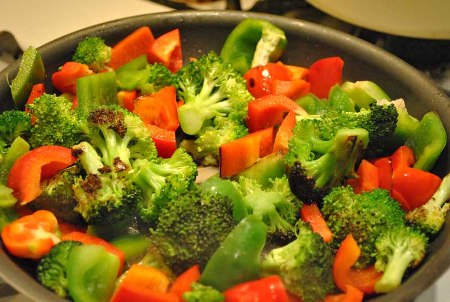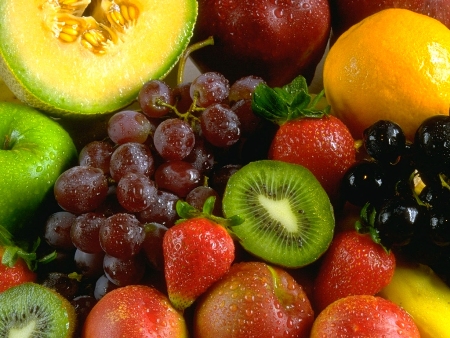
In the process of breaking down the food we eat, our digestive system produces a byproduct, gas. Producing and passing gas is normal for the human body but sadly many myths are attached to this normal function of the body. Mentioned below are some of the popular myths about gas.
Constipation causes gas and flatulence
Constipation has some of the same symptoms as gas, e.g., bloating and abdominal pain etc. But constipation is not the cause of gas and flatulence. Constipation may also cause a blockage in bowel passing and flatus passing, which in turn may increase the bloating and pain. But it is never the cause of gas production inside the digestive tracts. Gas is produced when we swallow air and when the bacteria in the large intestine start to digest the food we eat.
Of the three elements in food, carbohydrates are more likely to produce gas. The small intestine in our body cannot digest certain carbohydrates because of the absence or lack of the enzymes that aid in their digestion. Now, this undigested or slightly digested food in the small intestine moves to the large intestine. After it reaches the large intestine, the previously mentioned bacteria comes to work on it and in the process gases like hydrogen, carbon dioxide and methane are produced and expelled from the body.
Everyone is not likely to suffer from gas from the same food or the group of food. Swallowing of air while you eat and/or drink is another cause of gas production. Human beings tend to swallow a certain amount of air while eating and/or drinking. This swallowed air is generally released by burping it out. If for some reason burping is obstructed or the air is not released by burping, it will make it’s way to the large intestine following the small intestine, then eventually be released as flatulence.
Vegetables do not cause excess gas or flatus
Like we mentioned before, not everyone will produce gas from eating the same food in the same way and in similar amounts. But some vegetables cause more gas production than any other food substance. Vegetables which fall under this category are broccoli, asparagus, cabbage, onion, artichoke, Brussels sprouts, cauliflower, cucumber, green pepper, peas, radish and raw potato. Among the other foods, beans and legumes cause produce profuse amount of gas production if consumed in large amounts. Wheat and wheat bran foods too are known to produce gas.
Fruits are not likely to cause flatus or gas
Fruits such as bananas, apricots, peaches, melons, raw apples, pears and prunes are very likely to cause gas and flatus. To avoid gas you can try and eat these fruits slowly, chewing thoroughly. If you’re drinking juices made from these fruits, try avoid drinking with a straw, this way you’ll eliminate the possibilities of swallowing excess air through the straw. However, flatus produced from fruits and fruit juices is least likely to have odor unlike the ones produced from meat, eggs, asparagus etc.
Carbonated drinks help to digest, so there will be less gas if I drink them
Wrong. Carbonated drinks do not actually help with digestion. The fizz in these drinks makes your stomach feel less full, so you feel at ease and tend to think they’ve helped you to digest. But in reality, they can actually increase the gas production in the same way as the swallowed air does. The bubbles and fizz in carbonated drinks hold a certain amount of air, which is released after going to the intestines. Also, make sure you avoid sipping with a straw. It’s better to avoid carbonated water during lunch or dinner time.
Cold milk is least likely to cause gas or flatulence
Some people use cold milk for getting relief from acidity, but the relation between cold milk and gas has not been proven to be benevolent. In general, milk and other milk products are likely to cause gas because of the main sugar substance in milk products: lactose. Lactose intolerant people are most likely to see severe symptoms like diarrhea, vomiting and nausea along with gas. Several other foods like packaged foods contain lactose, such as cereal, salad dressing and bread.
People who burp loudly are likely to create loud flatulence as well
It’s actually the other way around. People who burp out the excess air or gas are least likely to produce flatus. There are two ways excess gas is released from the body, one of them being burping and the other being flatus or releasing gas though the anus. Burping is the most naturally accepted method of the body and it may occur as soon as you’ve consumed a little amount of food. But if burping is somehow obstructed, the gas must be released through the anus in the form of flatus. If both are obstructed, a series of hiccups will rise trying to release the incarcerated gas.
Regular gas is a natural phenomenon
Production of gas is indeed a natural occurrence. Gas (be it flatus or burping) is produced inside the stomach and intestines. The process takes place due to the breaking down of food into energy by your body. It is normal to pass gas 6 to 20 times per day via burping and flatus combined. However, if you’re suffering from gas throughout the day and for several days, it is likely that you’re suffering from chronic gas problems. In such cases, you can try taking some over-the-counter oral medications for gas. In order to achieve long term benefit, one should think about changing their eating habits and lifestyle for the better.
There is no treatment for gas, and neither is it required
This myth is false in nature! There is a definite treatment for gas and sometimes it is required. Even though a certain amount of gas production and gas passing is natural, excess of anything can be harmful or can be the symptom of something harmful. Chronic gas can create some physically and socially uncomfortable situations. Among the physical conditions, constant hiccups, gnawing and pain in the abdomen, bloating etc. are common. The treatment is quite simple, Dietary supplements such as Beano may help to prevent gas. Nonprescription medicines with simethicone dissolve gas bubbles. Some subtle changes in dietary habits like eating slowly and chewing food thoroughly etc. can help produce less gas.
One cannot pass gas or flatus during sleep
Many of us do several things in our sleep which we are not aware of unless pointed out by a partner or room mate. These things may include drooling, sleep walking, talking in sleep, twitching, snoring, nocturnal orgasms, bed wetting and flatulence. Passing gas through the anus, during sleep, is a natural phenomenon but since we’re asleep at the time, we are not aware of it. It has a lot to do with the kind of food you eat for dinner and how you eat. There’s nothing pathological about this phenomenon but it can be embarrassing. You might want to remove certain foods like red meat, asparagus, excess carbohydrate foods from your dinner menu. Also, try to wait at least an hour or so after dinner before going to bed.




